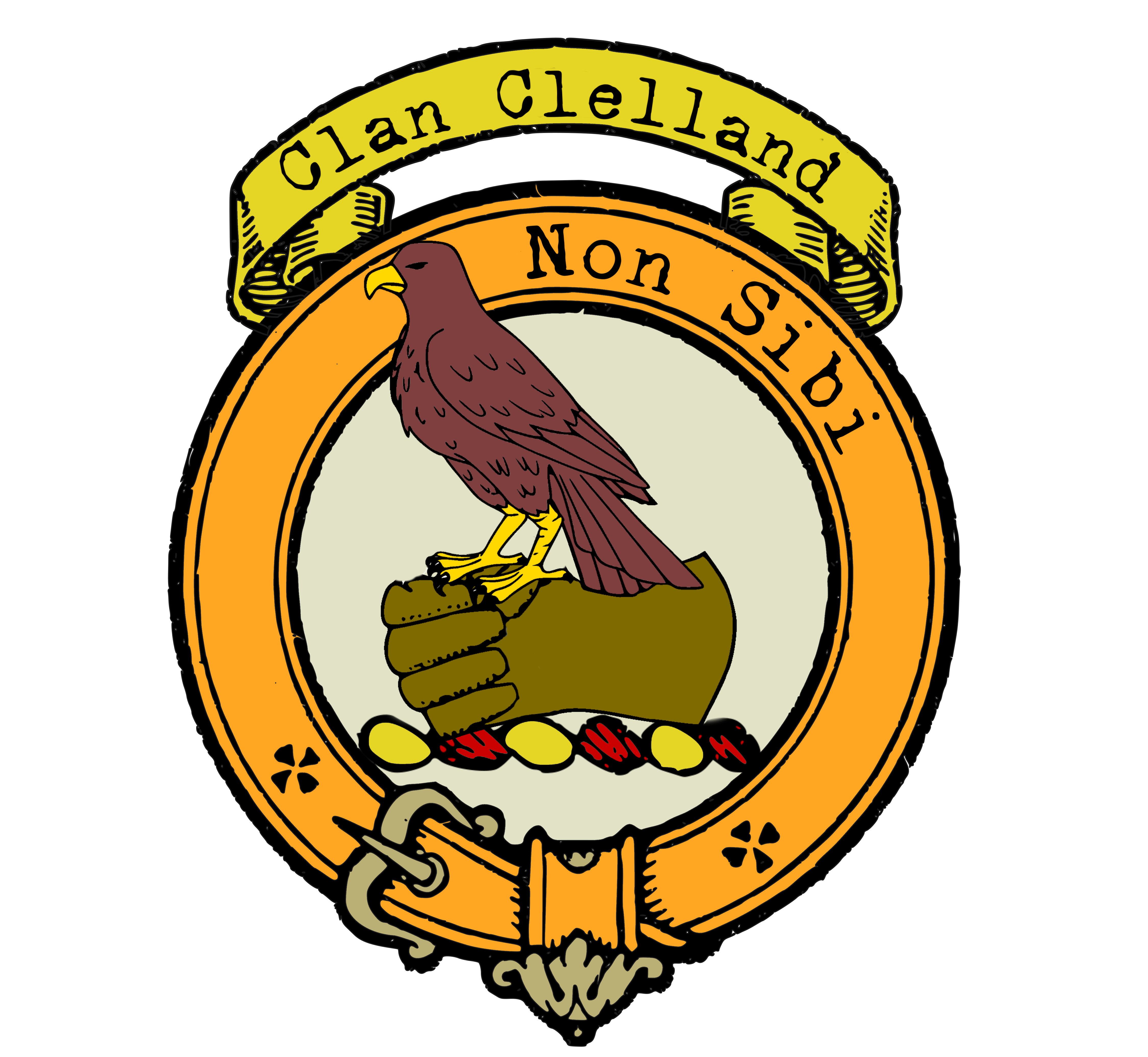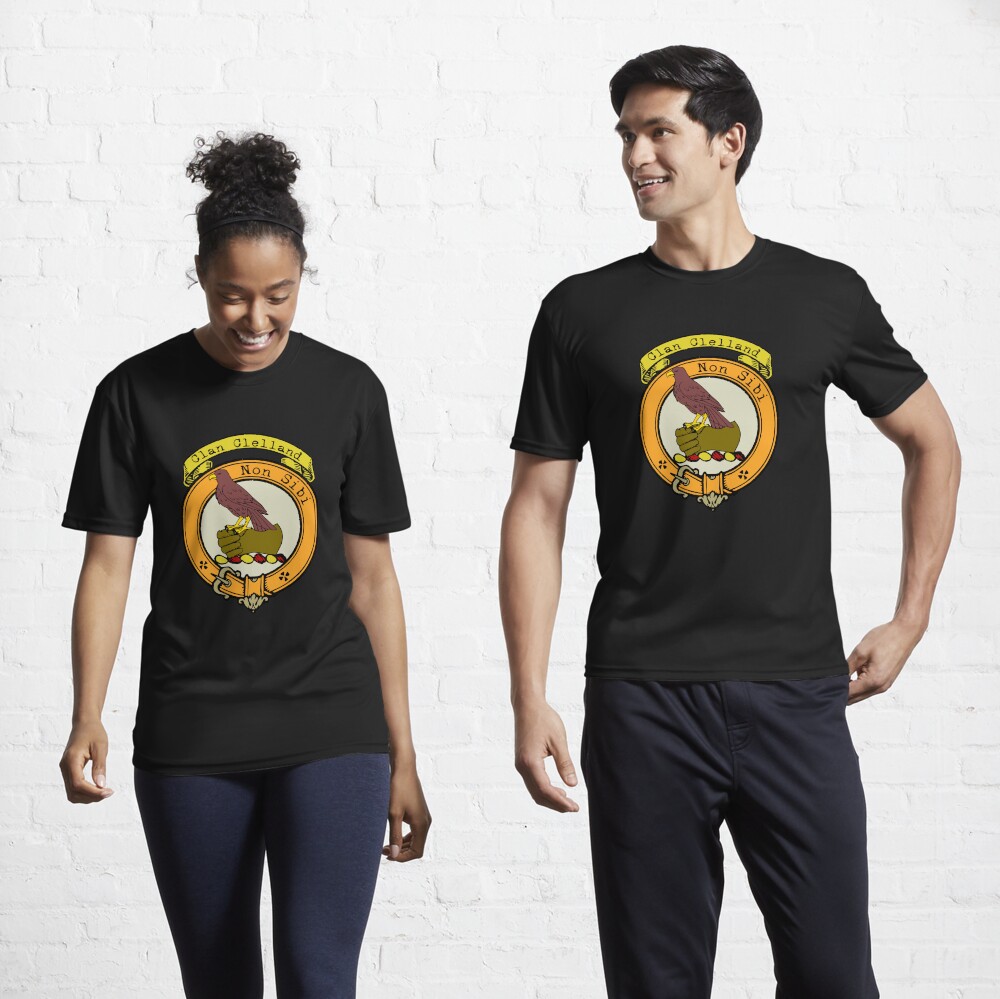Clelland Clan Crest
 |
CREST: A falcon upon a glove sinister Proper MOTTO: Non Sibi TRANSLATION: Not for self VARIATIONS: Cleland |
| The Scottish Clan Clelland has a fascinating history that spans centuries. The name Clelland is derived from the lands of Kneland or Cleland in the parish of Dalziel in Lanarkshire, Scotland. The Clellands of that Ilk were hereditary foresters to the Earls of Douglas, and their coat of arms featured a hare with a hunting horn around its neck.
The earliest known member of the Clelland clan was Alexander Kneland of that Ilk, who was married to Margaret, the sister of the Scottish patriot and independent leader, William Wallace. Kneland fought in the War of Independence against the English and is believed to have fought at the Battle of Bannockburn in 1314. In recognition of his services, he received extensive lands, including some within the barony of Calder in West Lothian. |
|
 |
|
| Purchase @ Redbubble Purchase @ Amazon.com Purchase @ Amazon.co.uk |
|
| The clan continued to play a prominent role in Scottish history, with members of the clan fighting in major battles such as the Battle of Flodden in 1513. Alexander Clelland of that Ilk and his cousin William both died at Flodden, which was one of the bloodiest battles in Scottish history.
However, the clan’s involvement in Scottish history was not always positive. Alexander Cleland of that Ilk, who was related to the Earl of Bothwell, the third husband of Mary, Queen of Scots, was implicated in the murder of Lord Darnley, the queen’s second husband, along with other members of his family. Despite this dark chapter in their history, the Clelland clan continued to thrive. In the 16th century, a branch of the clan moved to Lanarkshire and became known as the Clellands of Faskine. They were a prominent family in the area and owned extensive lands, including the estate of Faskine. The Clelland name lives on today, with members of the clan spread throughout the world. The clan has a strong sense of pride in their history and heritage, and many Clellands continue to be involved in Scottish cultural events and celebrations. In conclusion, the history of the Scottish Clan Clelland is rich and varied, with its members playing significant roles in Scottish history, both positive and negative. Despite this, the Clelland name lives on, and the clan’s history continues to be a source of pride for its members. |
|
|
|
|